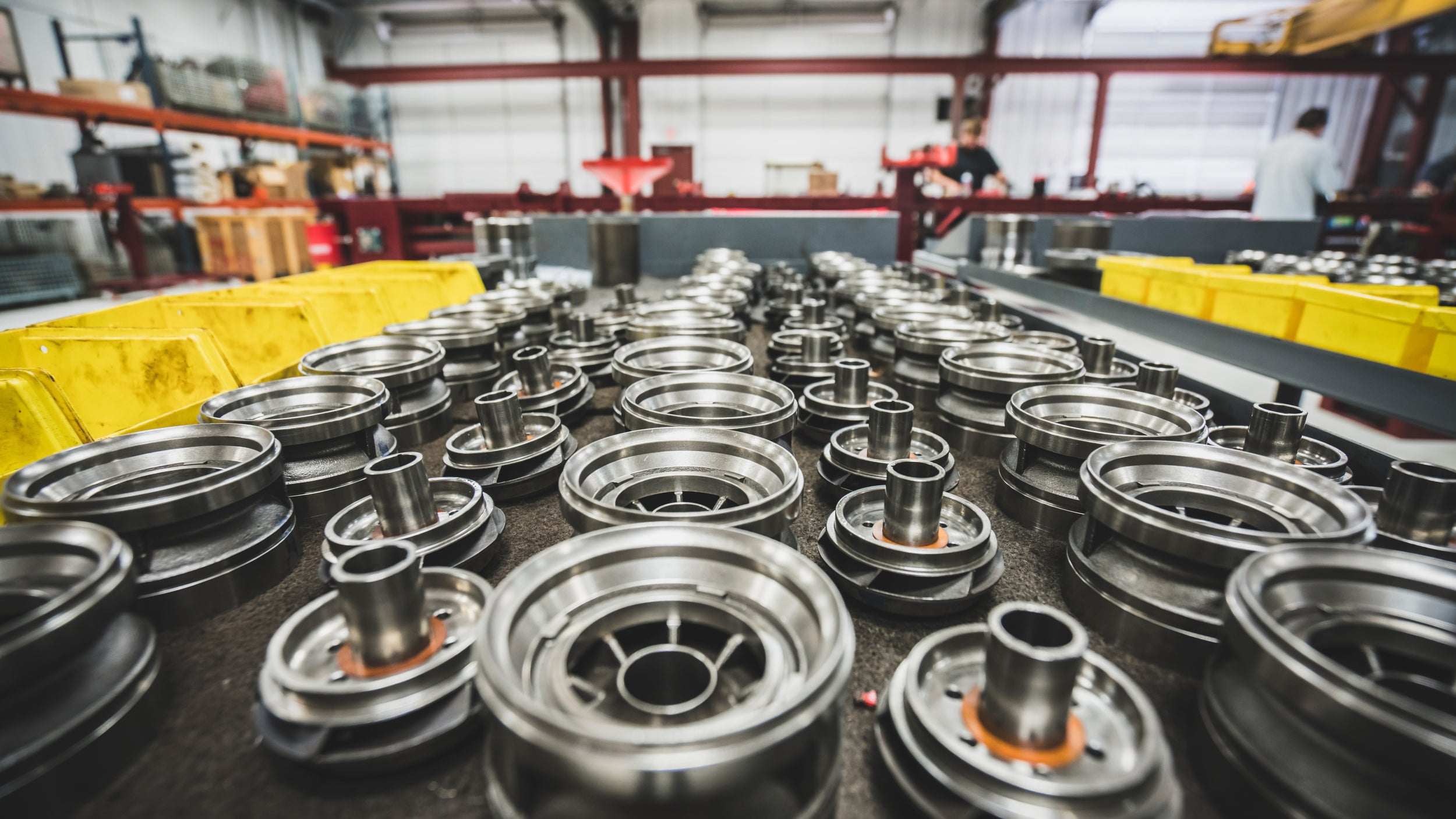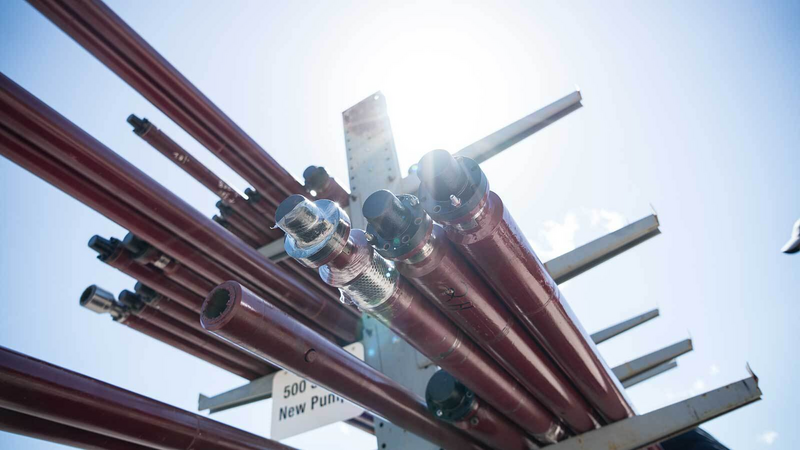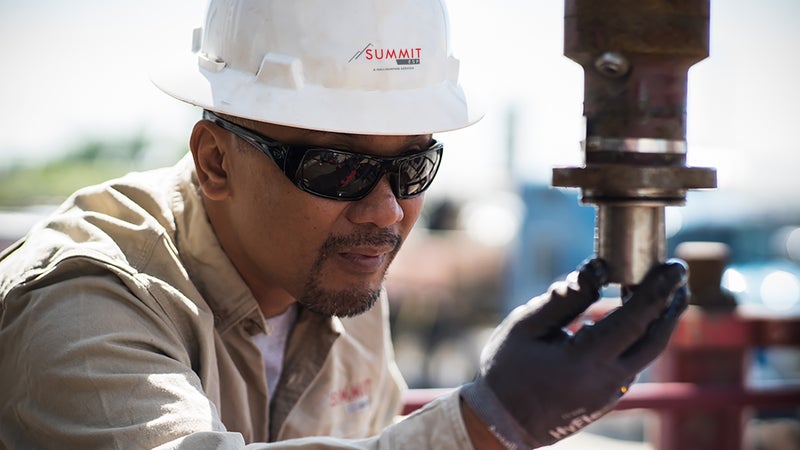 Search
Search
 Search
Search

Fewer workovers saves estimated $170,000 per well plus non-productive time
Download PDFUnconventionals

Increase pump run life and decrease losses in an extremely abrasive environment

Alberta, Canada

Sand is a common and troublesome solid that interferes with production by both abrasion and accumulation. The Charlie Lake formation in Western Canada has significant sand content that forces frequent rod pump maintenance and workovers. Sand can foul rod pumps, and wear their plungers and pump barrels. Mitigating damage from produced sand reduces workover costs and non-productive time. Repair costs are substantial, leading operators to seek an alternative.
Operators need reliability and long run life from downhole pumping equipment to achieve optimal production. When pumping efficiency declines, production declines. Bearing systems and bushings, in particular, often show excessive wear and lead to shortened run life. In the Bakken region, one operator found that 90 percent of pulled pumps in extremely harsh downhole environments had significant levels of bushing migration. Improving bearing system performance could improve overall run life.
An operator in the Spirit River play in the Charlie Lake formation was using rod pumps for production. The high inflow, high oil cut reservoir produced entrained sand on flowback. This solid caused sand screens to plug and pumps to seize. Multiple mitigation techniques had limited success in addressing the problems, which were causing frequent workovers and non-productive time.
Summit ESP – a Halliburton service, proposed an ESP-based system coated with SF900 Durahard™ 15, its premium molecular bond coating. DuraHard 15 coating provides hardness comparable to carbide materials, but ductile enough to coat and bond steel components.
Summit ESP systems are designed and tested for extreme conditions, including high heat and abrasion. The Tiger Shark II pump has bearings and bushings with high heat tolerance, abrasion-resistant materials, and a patent-pending mechanical seal. The patented diffuser/ impeller actively moves sand away from the pump. The new pumping system was installed in a well on the same pad as three wells using rod pumps for lift.
The Summit ESP pump system has been running more than 260 days. It outperformed all three rod pumps on the same pad. Each of the rod pumps had three workovers in their first 260 days, incurring a total direct cost of $517,000.
Run life for the ESP-based system is at least three times that of the rod pumps. This adds up to an estimated $170,000 savings in workover costs to this point. In addition, the ESP enables maximum drawdown and higher production rates with its higher flow rates (225m3/d) versus the rod pump (80m3/d max).
Each rod pump workover also incurred an average of six days on non-productive time. At 200 BOE/d per well, each workover cost an estimated 1,200 BOE. With three workovers each during the 260 day period, the rod pump wells incurred non-productive time valued at an estimated 3,600 BOE, or $180,000 at $50/B oil price.
days of run life
workover cost savings

Halliburton delivers superior performance and reliability by combining our proven products and decades of experience in artificial lift.

Halliburton's Summit ESP® electric submersible pump systems increase run life and maximize production.
